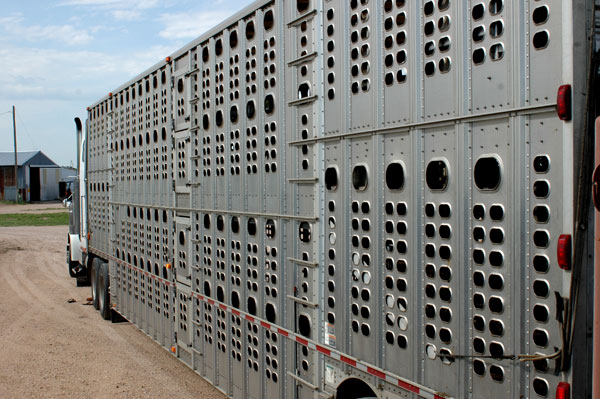GIPSA rule bites the dust, but will the dust-up continue?
While the GIPSA rule is now dead, it revealed how vulnerable the beef business is to being regulated by outside forces.

We all knew it was coming, but USDA announced earlier this week that it was not moving forward with the “Farmer Fair Practices Rules” or GIPSA rule as it was commonly referred to within the industry. Ag economists, academia and every segment of our business, along with the major associations representing the pork and beef industries, celebrated the decision.
The widespread consensus was that this a rule that would have had devastating unintended consequences, and like most regulations would have resulted in reduced competition, increased consolidation and costly expenses to the industry. Increased prices at the consumer level, increased production costs, less competition, more consolidation and movement away from quality value-added production back to more conventional commodity pricing that benefits the big players, is not a formula that had much support in the livestock industry. The National Pork Producers Association (NPPC) and NCBA both sent out releases applauding the decision.
One of the big concerns was the addition of a provision that was not included in the original Farm Bill that eliminated the need to prove a competitive injury to win a Packers and Stockyards Administration (PSA) lawsuit. It was widely believed that this would have opened the industry up to unlimited lawsuits by activist groups and others. Additionally, the rule would have had a devastating impact on value-based, value-added marketing programs, and negative impacts on the consumer from both a price and quality standpoint.
There was some uncertainty about how the Trump administration would look at this; they tend not to be in favor of burdensome regulation, government interference in the marketplace and have a pro-growth stance toward American industries, even unpopular and politically correct industries like agriculture and energy. Those leanings all pointed to not moving the rule forward.
But proponents of the rule hoped that Trump’s populist leanings might take over as the rule was cast as a way of going after the multinational, evil packers. In the end, the economic implications for the U.S. livestock industry were too much to ignore.
Of course, that doesn’t mean that everyone is happy. The Organization for Competitive Markets (OCM) called it a slap in the face and issued a release decrying USDA’s decision to not move the rule forward. Trial lawyers and activist groups like HSUS saw a great opportunity to increase litigation against the industry.
While academia, economists, industry segments, the agriculture committees in Congress and the organizations representing agriculture may have all been universally against this rule, it was a great case study in the dangers of an agenda-driven government agency. This rule, while never implemented, was created and moved quite a ways toward the finish line by the Obama administration. The livestock industries were not only outmaneuvered by outside activist groups, but for a time were badly out-performed in crafting and getting their message out.
Hillary Clinton tended to have a more programmatic approach to agriculture and a willingness to let economic concerns override political agendas, so it is possible that this rule would not have proceeded in a different political environment. There tends to be a view within the livestock industry that common sense would have won out and nothing this harmful to the industry would ever have been implemented.
I would caution that this attitude is overly optimistic, and in celebrating this outcome, it should be an eye opener of just how vulnerable the industry is to be regulated by outside forces with a desire to destroy us. It certainly has not been lost on those opposing our industry.
The next time political agendas align, expect the opponents of our industry to even be better at creating their populist message and touting the outcome with universal appeal while fully understanding the actual consequences such a rule or regulation would create.
We may have won the battle, but the opponents of our industry realize that they came close to delivering a devastating blow and will be emboldened going forward.
The opinions of Troy Marshall are not necessarily those of beefmagazine.com and Farm Progress.
About the Author(s)
You May Also Like




.png?width=300&auto=webp&quality=80&disable=upscale)
